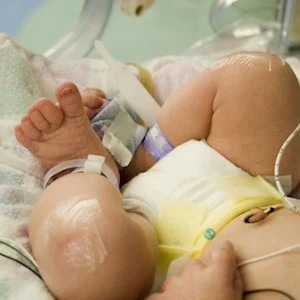The American Academy of Pediatrics has issued a new clinical report to help neonatal intensive care units (NICUs) better prepare for disasters. The report reviews disasters that have affected NICUs in the U.S. and examines how organising concepts of mass critical care in paediatrics can be applied to the NICU.
The report, “Disaster Preparedness in Neonatal Intensive Care Units,” will appear in the May 2017 issue of Pediatrics. The guidance builds on AAP policies concerning children in disasters, with an objective to help neonatologists and other NICU providers develop response plans within their units, hospital institutions, and geographic areas.
Recommendations include that healthcare institutions and providers know and prepare for the most likely disaster scenarios in their communities (e.g., hurricane, earthquake, or flood) and that NICU teams fully participate in the emergency and disaster planning, including disaster drills and design drills that address the unique needs of NICU patients.
Other recommendations include:
- Neonatal care systems should develop appropriate staffing to support safe and effective operations during disasters. Leaders must anticipate generating sufficient surge capacity to provide three times’ baseline critical care resources and to sustain this for 10 days during a major public health disaster.
- During a disaster, neonatal care providers should maintain situational awareness for decision making, including the number of patients in their care and severity of illnesses, what equipment is available, medication routines and storage, staffing, transport, and evacuation. A process of ethical decision-making and altered standards of care needs to be included in the planning.
- In addition to the needs of NICU patients, NICU providers will need to consider the medical and psychosocial needs of postpartum mothers and families. Plans also should recognise and respond to NICU staff needs, including self-care and support during a disaster.
- Preparedness is an ongoing process that changes with experience and evidence, thus NICU providers should continue to research best practices as well as the effects of altered standards of care in disasters.
Source: American Academy of Pediatrics
Image credit: freeimages.com






